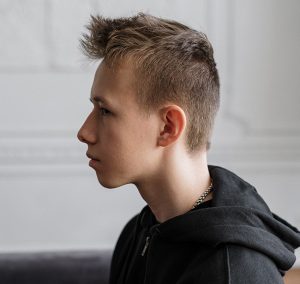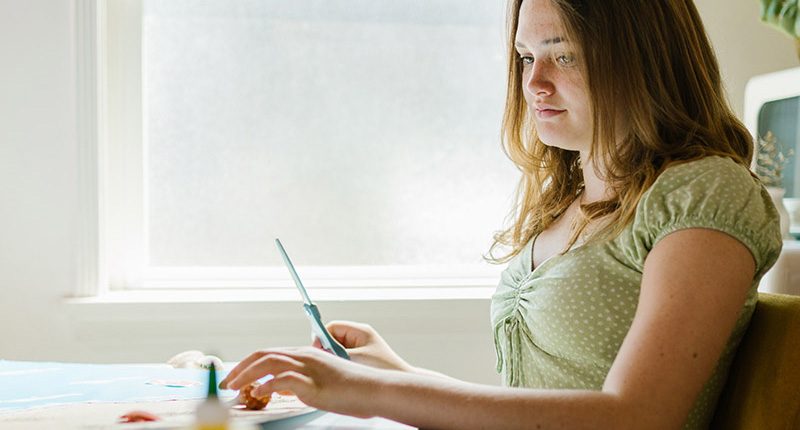By Laura Herman and Robyn Saffer, Thinking-Together About Parenting Teens.
The lockdown had an impact on all of us. Some of us have bounced back, some are still showing signs of struggling – in particular anxiety and a feeling of “can’t be bothered”.
We all had a shock. There was a national and global fear that we or someone close to us, would become gravely ill or even die. For some people this was an awful reality.
Everyone had no choice but to adjust to lock downs and restrictions – some coped better than others. Some people embraced the time with their loved ones, others felt claustrophobic and craved their own space. Adults working with children at home that needed supervision, were worn out. Not to mention those that also had to take care of vulnerable family members/friends/neighbours.
Some people were completely isolated and many people had financial concerns.
We were worried we couldn’t take care of our basic needs – initially there was a shortage of essential products.
Just as we hoped things would return to normal, there is the horror of war and increasing financial pressures.
So how are you in the aftermath of Covid?
Some adults tell us they don’t want to return to their busy lives. They question: is this a better way of being, or have I become lethargic, maybe even depressed? Others tell us they can’t wait to do everything and don’t want to waste any time.
Social groups have changed. For some people they are prioritising who is important to them. For others they have lost connections and feel lonely. We ran out of things to say to each other and soon the excitement of FaceTime and House Party dwindled.
Some people have positively weaved into their lives things they enjoyed before and during lockdown such as walks, working and partying. Others still have an anxiety about mixing in public places.
Many people are still using screens and losing themselves in series on Netflix.
How can we help our children after lockdown?
Just like adults, young people have been affected.
They were scared too. Our anxiety filtered through to them. Some were lucky enough to have good online schooling, others didn’t have access to a quiet space to learn, a printer, a lap top and so on. It must be said that schools and teachers did a brilliant job of providing an education to young people at a very difficult time.
Young people changing schools didn’t have the chance to say a proper good bye. Pupils didn’t have time to form friendships as they started their new school. The beginning of the school year was quickly disrupted by another lockdown, not to mention the constant interruptions of needing to isolate when they, or someone they had been in contact with, tested positive.
All young people’s social development was interrupted and delayed. The shy pupil or pupil who lacked confidence, may have enjoyed the safe space during lock down but how did they manage when they returned to school? Others may have felt isolated, struggled to stay connected and now feel that they aren’t liked when they are no longer part of a friendship group. Those who thrived on socialising can find they feel overwhelmed now things have returned to normal. Some might be grabbing every opportunity to go out, to make up for lost time. They all missed out building and maintaining relationships, negotiating and resolving quarrels with their peers, winning and losing in daily life, increasing independence – all necessary life skills that are key to their development.
Some pupils find academic work difficult. There are gaps in their learning, partly because they were struggling to focus whilst home learning. Exams were cancelled. The latest cohort to take exams have been given mixed messages “look after your mental health” and “you must do well in all your work in case we need evidence to back up your grades” in the constant testing they have undergone all year.
Many pupils thrive in the extra-curricular activities that were taken away from them. Having something in common with their peers and learning to be part of a team, are crucial life skills and an important way to make friends and decrease stress. Instead, many young people turned to their screens for gaming, socialising watching box sets and endless clips on TikTok. The boundaries around daytime and night time became fuzzy. They became reliant on screens to pass the time and to distract them from the difficult feelings they might have experienced.
In most households there was tension during lockdown, as families adjusted to the abnormal amount of time, they were forced to be together. Vulnerable young people who saw school as a safe place, suddenly couldn’t escape the unbearable arguing or worse at home.
Checklist: What can you do to help your child?
- Understanding that whilst many young people are resilient and have bounced back, there are some that might be struggling, is a helpful stance to take for your child.
- Be curious about how they are, listen to what they are telling you.
- Normalise how they feel. Let them know, we all had a shock and it is ok for it to be taking time to get use to all the changes.
- It is important to encourage your child to take part in “ordinary” life again. But if your child is struggling, understand that they might need to take it slowly, in smaller steps.
- Ask your child if they need any support from you or another trusted adult.
- Be aware of your own mood and language around your children. Have they heard conversations that aren’t age appropriate e.g. about money, the war, something else?
- Address their concerns and give them truthful age appropriate information. However, don’t burden them.
- If your child witnessed difficult events at home, this will have impacted them. Give them some time to talk to you about it.
- Re-negotiate screen times and put sensible boundaries back in place.
- If you are concerned about your child, talk to their school to gain their support and seek professional help.
Sign up for more details about our parenting workshops.
Contact us to discuss providing a workshop in your school.
For helplines and support see: Getting Help
Follow us on Social Media:Facebook Thinking-Together About Parenting Teens Instagram thinking__together

